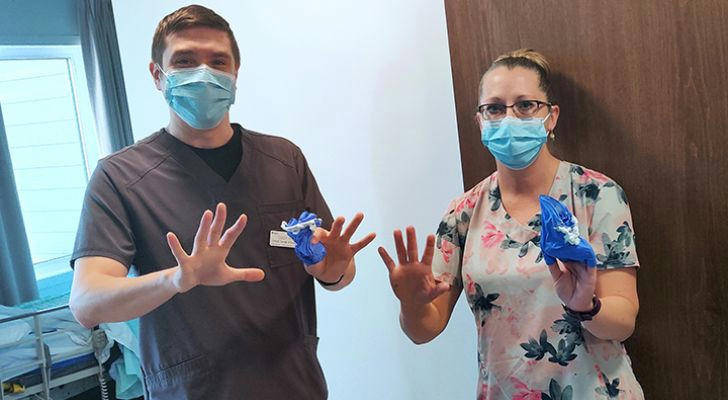Alberta Health Services: Policy Interpretation and Training of HCA Courses
Canada is facing an unprecedented challenge of population aging. According to data from the Government of Canada Job Bank, it is projected that between 2022 and 2031, there will be approximately 191,000 new job openings for Health Care Assistants (HCAs), while the number of job seekers during the same period is only 170,100, indicating a significant shortage of manpower. Against this backdrop, the importance of the HCA profession has become increasingly prominent, emerging as a key role in ensuring the quality of life for the elderly.

Applying for Government-Funded HCA Course Training
Advantages of the HCA Course by Alberta Health Services
Government-Funded Training
The program is funded by the government, which means you don't have to worry about tuition fees. This makes healthcare training more accessible, even for those with limited financial means.
Professional Skills Training
The HCA course covers a wide range of healthcare knowledge and skills, including but not limited to basic nursing operations, first aid skills, and patient communication techniques. Through systematic training, trainees will acquire the necessary professional knowledge to provide high-quality care services to patients. For example, in first aid skills, trainees will learn how to handle common emergencies, such as cardiopulmonary resuscitation (CPR) and hemostasis and bandaging, which are crucial in real work situations.
Paid On-the-Job Training
Alberta Health Services offers paid training, allowing you to earn while you learn. There are no entrance exams, no certificates required, and no prior experience needed. The course is open to the public, and the practical experience gained during the training ensures that you are well-prepared for a successful career in the healthcare field.
Career Development Opportunities
Upon completion of the course, you will have the opportunity to apply for full-time positions with Alberta Health Services (AHS), ensuring quick employment. According to AHS data, the hourly wage for uncertified HCAs is CAD 20.78, while certified HCAs earn between CAD 21.43 and CAD 25.52 per hour, providing stable income and ample career development opportunities in the healthcare sector.
Career Advancement Paths
Senior Health Care Assistant: By accumulating experience and undergoing further training, you can be promoted to a senior health care assistant, taking on more complex nursing tasks and management responsibilities.
Nursing Coordinator: Responsible for coordinating the work of the nursing team to ensure the continuity and efficiency of patient care, requiring strong communication and management skills.

Career Transition Directions
Healthcare Administration: Utilize your experience and knowledge in the healthcare field to transition into healthcare administration roles, such as hospital management or nursing management.
Healthcare Information Technology: With the development of healthcare informatization, HCAs can move into the healthcare IT field, such as electronic health record management and medical data analysis.
Immigration and International Employment Opportunities
Canadian Immigration: In Canada, the HCA profession is in high demand. After gaining relevant work experience, you can apply for permanent residency through provincial nomination programs (e.g., BCPNP).
International Employment: With an HCA certificate and experience obtained in Canada, you may have the opportunity to work in healthcare institutions in other countries, especially in English-speaking nations.
Case Study
To better understand the value of HCA course training, here are some successful cases. For example, Mary from Alberta successfully entered a local hospital after completing the HCA course training with AHS. She said that the practical opportunities in the course enabled her to quickly adapt to the work environment after graduation, and the professional knowledge she learned also made her more confident in her job. Now, Mary has accumulated several years of work experience and plans to further enhance her professional qualifications.
Conclusion
As discussed above, the outlook for Health Care Assistants (HCAs) is bright in the coming years. The growing healthcare industry, with almost all its sub-sectors, is in need of more healthcare workers, and nursing staff are no exception.
Since the outbreak of the COVID-19 pandemic, the government has been funding various projects in the healthcare industry. As a result, the province is building new hospitals and other healthcare facilities. All these new public sector investments will promote the demand for Health Care Assistants (HCAs) in various ways.
